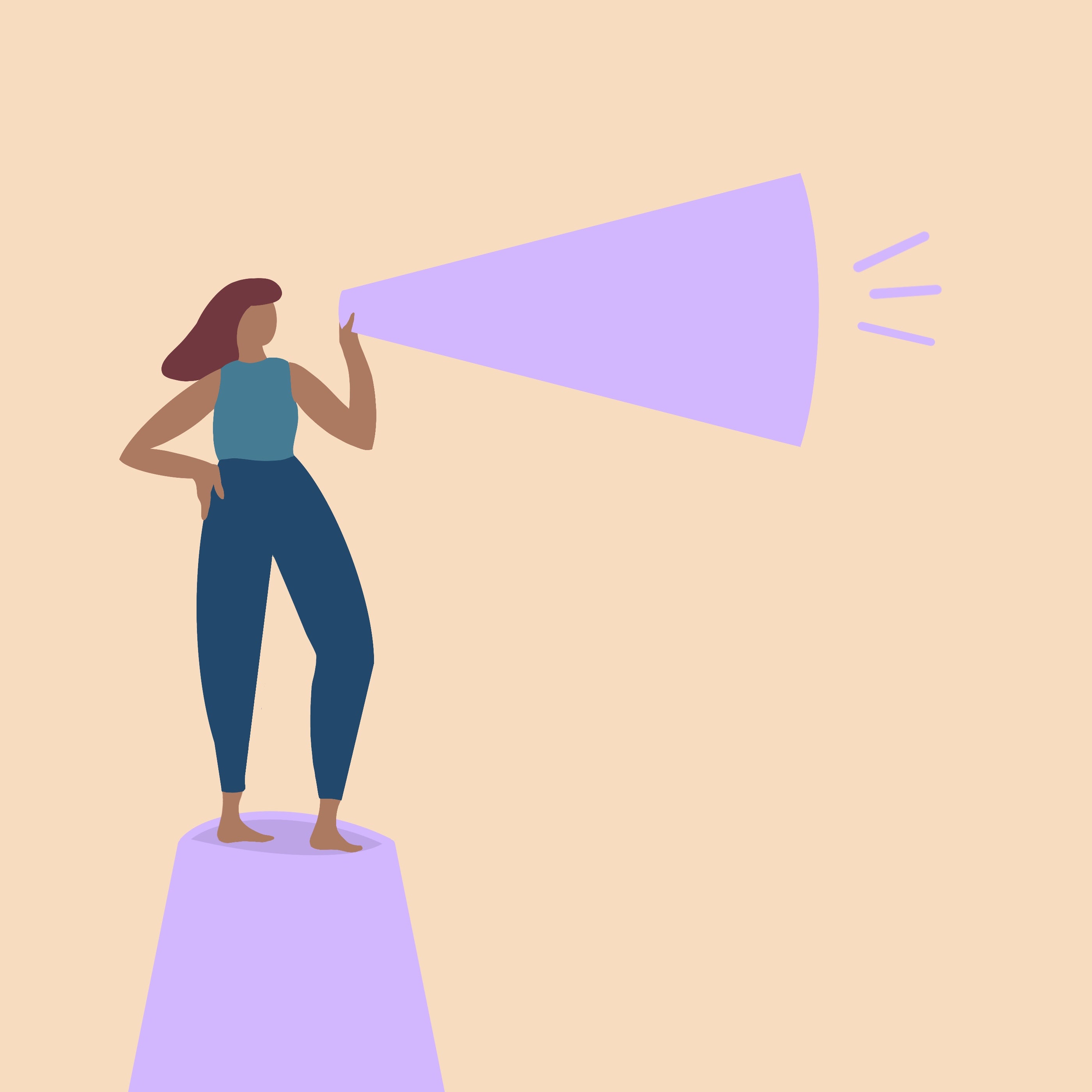How WhatsApp voice notes saved me in lockdown
The pandemic and remote working forced us all to rethink the best way to communicate. For Sophie Gallagher, it meant going back to the art of small, joyful snippets of conversation


The first voice note I ever sent was an accident, incurred as a result of fat thumbs and trying to carry too many bags. An awkward two seconds of muffled swearing sent off to an unsuspecting WhatsApp contact; the familiar embarrassment of a pocket dial.
That day I wrote the voice note off as an annoying addition to the keyboard that I didn’t understand and didn’t want on my screen. Surely if you want to speak to someone you call, and if you want to send a message you write? What was this hybrid that served neither purpose?
But during lockdown I came to rely on it as a vital means of communication. As a way to bring the sounds of loved ones into our living room when we couldn’t be further away from sharing a sofa or a cup of tea. As a way to chat with colleagues about everything and nothing in a way that feels human, rather than generating yet more Slack notifications.
As a way to pore over details of lockdown-induced relationship breakdowns, arguments (and subsequent make-ups) during the middle of the working day when there is no time for a phone call but too much emotion to condense into a text, with its lack of nuance and feeling. As a way to hear a 10-second snippet of a loved one laughing as they try, and fail, to relay an anecdote – the sound of which is in no way comparable to a texted “haha”.
Of course for as long as humans have existed we’ve needed to feel connected, but 2020 has thrown up a very modern disconnect. Many of us have access to more technology than ever before; letting us Zoom into each other’s lives, host pub quizzes, teach classes, hold meetings and get more of an insight into your colleague’s bedroom than you ever really needed.
But having the tools to communicate constantly doesn’t necessarily mean we’re any better at it. Various studies have shown lockdown made 25 per cent of us feel we have no real friends, a quarter have felt lonely, while anxiety and depression have skyrocketed. And potential for burnout is at an all-time high as we work longer hours (51 per cent of us are now doing more than our contracted hours in lockdown) and feel contactable by our employer 24/7.
During lockdown I spend the entire day staring at one type of screen or other: flicking between browser tabs and instant messenger, from social media inboxes back to emails and Slack, the carousel of communication spinning like a revolving door you can’t quite squeeze out of. On lunch breaks and in the evenings the laptop screen would be replaced by a smartphone or television – our only contact with the outside world. If the TV turns your eyes square, then mine were quickly morphing into a 5in rectangle.
Of course you sound simultaneously more nasal, husky, squeaky and annoying than in your own head…
Quickly I became tired of replying to texts or Twitter DMs with half-hearted efforts, unable to bring myself to type after a nine-hour shift doing exactly that. Just as we needed to stay in touch with people outside of our households I was losing the will to do so. So I switched to voice notes. Tentatively at first, but once the floodgates were open, there was no going back.
Having listened to hundreds of hours of interviews for work, I had already overcome the first obstacle; the sound of your own voice. Of course you sound simultaneously more nasal, husky, squeaky and annoying than in your own head. Soon I was reeling off notes like a Shakesperian monologue (much to the annoyance of my audience no doubt).
Notes to friends with advice on their relationship; to my sister on a different continent whose waking time zones are the exact opposite of mine; to my partner (who hates them) about the length of the supermarket queue; to colleagues with ideas, questions and gossip – the closest we had come to a cross-desk whisper or kitchen debriefing in nine months.
It allows you to switch up the pace, to convey emotion or sincerity, to deliver comic timing. And to enjoy talking for talking’s sake, sometimes the joy is in the art of informal conversation not the message you are there to deliver.
Unlike a telephone call it still offers privacy and containment – I can send voice notes whenever I like but that doesn’t mean the person has to be free and ready to listen instantly. It also means you can listen to them while doing other things (going to the toilet is not appropriate on a phone call but no one will know when listening to voice notes). Unlike a voicemail it is accessible and speedy, it doesn’t require someone to phone you back in order to reply.
Lockdown and remote working has reminded us all that just because we are constantly in contact, it doesn’t mean we’re really talking or hearing. As many of us miss the small things about life, voice notes are the perfect medium to revisit them. The sound of my mum’s kettle boiling in the background, the neighbour’s dog barking across the fence, the melancholy tones of a friend that you’d easily miss in a text, and the reassurance of a familiar voice.
Join our commenting forum
Join thought-provoking conversations, follow other Independent readers and see their replies
Comments

Bookmark popover
Removed from bookmarks